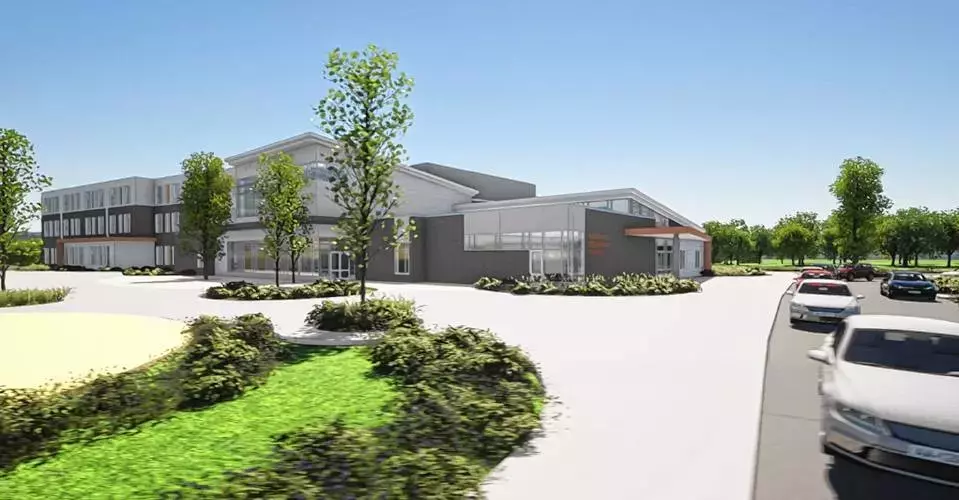



Achieving Educational Excellence Through Sustainable Innovation
The proposed new elementary school building in Amherst is set to become a beacon of sustainability and educational excellence. Designed by DiNisco Design of Boston, this state-of-the-art facility will feature advanced green technologies, including ground-source heat pumps and photovoltaic panels. The project has faced delays due to bid disputes, but officials remain optimistic about adhering to the original timeline, ensuring students can occupy the new building by fall 2026.
Contract Finalization: Overcoming Challenges
Despite initial setbacks caused by protests against CTA Construction Managers, the project is now back on track. The state attorney general’s office Fair Labor Division dismissed these challenges, paving the way for contract negotiations to resume. Town Manager Paul Bockelman assured the Elementary School Building Committee that every effort is being made to expedite the process and meet the end-of-year deadline.
The bid submitted by CTA was not only the lowest at $73.48 million but also came in under the agreed-upon budget by $4.8 million. This financial cushion provides flexibility for any unforeseen adjustments. However, the delay has impacted the construction schedule, which originally aimed to complete the building by June 2026, well ahead of its opening for the 2026-2027 academic year.
Sustainable Design: A Blueprint for Future Schools
The new 105,750-square-foot school will be a model of environmental responsibility. Its net-zero emissions design ensures it produces as much energy as it consumes, making it a leader in sustainable architecture. Ground-source heat pumps provide efficient heating and cooling, while photovoltaic panels generate renewable electricity. These features align with Amherst’s commitment to reducing its carbon footprint and promoting eco-friendly practices.
Building Committee Chairwoman Cathy Schoen emphasized the importance of maintaining the original completion date. Both Fort River and Wildwood schools are slated for closure once the new facility opens, with Fort River planned for demolition. Ensuring a smooth transition is crucial to minimizing disruption for students and staff.
Negotiations and Operational Impact
The discussions surrounding the final contract have involved multiple stakeholders, including Robert Pereint, the special capital projects manager, town attorney KP Law, and CTA representatives. Pereint noted that while the schedule impacts are still under review, efforts are underway to keep the project on track. The staggered construction phases, which must coordinate with the operational needs of Fort River School, add complexity to the timeline.
CTA shares the committee’s desire to adhere to the original schedule. Deviating from it could create logistical challenges and disrupt the carefully planned construction phases. School Committee member Deborah Leonard inquired about potential cost increases, but Bockelman reassured her that the bid remains firm, with only minor adjustments possible within the agreed-upon terms.
Community and Educational Benefits
This ambitious project promises numerous benefits for Amherst’s community. The new school will offer modern facilities equipped with the latest technology, enhancing the learning experience for students. Moreover, it represents a significant investment in the town’s future, providing a sustainable and functional space that will serve generations to come.
The collaborative efforts between town officials, architects, contractors, and educators underscore the commitment to delivering a world-class educational environment. As Amherst moves forward with this groundbreaking initiative, it sets a precedent for other communities seeking to integrate sustainability into their infrastructure projects.
